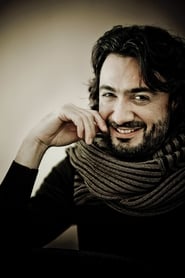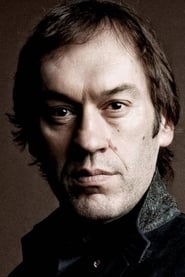
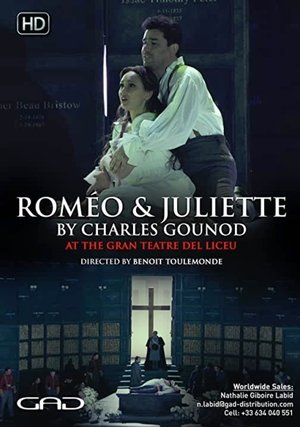
Romeo et Juliette - Liceu(2018)

Movie: Romeo et Juliette - Liceu
Top 10 Billed Cast
Romeo
Stéphano
Benvolio
Mercutio
Pâris
Grégorio
Frère Laurent

Romeo et Juliette - Liceu
HomePage
Overview
Release Date
2018-02-27
Average
7
Rating:
3.5 startsTagline
Genres
Languages:
ItalianoKeywords
Recommendations Movies
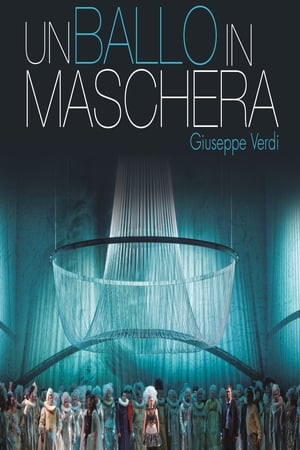 7.0
7.0Un Ballo in Maschera - Barcelona(en)
Envy and conspiracy, but also passionate loves, jealousy, revenge and final forgiveness come together in the masterpiece of Verdi, which aroused the anger and prohibitions of censors of the time until the composer and librettist was compelled to make changes in it: from the original Sweden to far away Boston. The great Polish tenor Piotr Beczala returns to the Liceu with one of his opening credits, accompanied by the soprano Keri Alkema. Vincent Boussard’s sets reinforce the dark and mysterious atmosphere surrounding the piece, which features costumes by Christian Lacroix and Vincent Lemaire’s sober staging, which allows one to focus their attention on the dramatic core of the score. The cast, directed by a true specialist like Renato Palumbo, also presents a leader in Verdian song: Dolora Zajick.
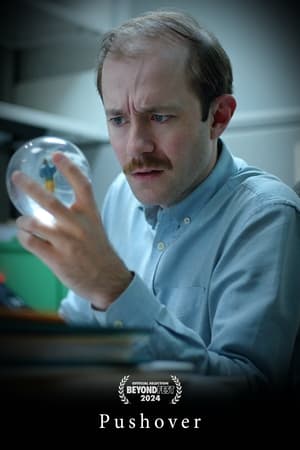 8.3
8.3Pushover(en)
A man's life is upended by increasingly threatening phone calls demanding he leave a review for a paperweight purchased online.
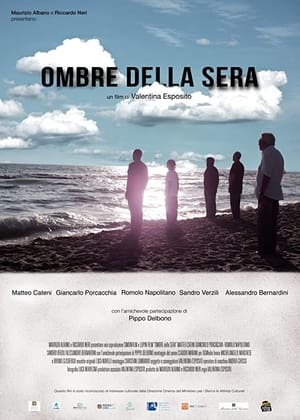 0.0
0.0Shadows of the Evening(it)
Intertwining stories of inmates and ex-inmates through the complex labyrinths of freedom. Wretched, desolate and doomed men, who try to expiate their sins and piece together the lives they used to lead.
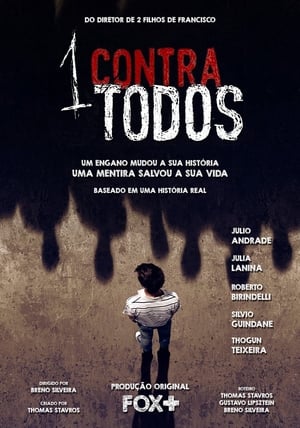 5.0
5.01 Contra Todos: O Filme 2(pt)
Two years after leaving prison, Cadu sets out to fight corruption and pursue a political career, but dangerous ties to the past haunt him.
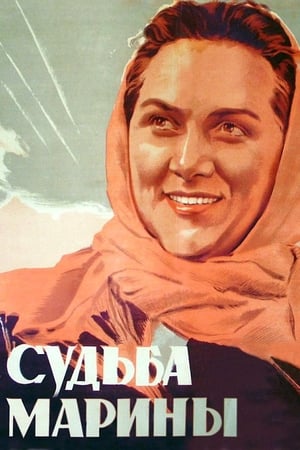 4.5
4.5Marina's Destiny(ru)
Terenty leaves the collective farm and goes to the city to study to become an agronomist. Marina works hard and looks forward to her husband's return. When her husband returns home, he reproaches his wife for being uneducated, asks for a divorce and leaves for the city. Left with her daughter, Marina devotes herself entirely to her studies and work.
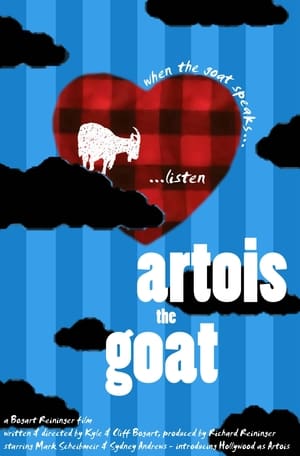 4.1
4.1Artois the Goat(en)
Lab technician Virgil Gurdies struggles to choose between his truelove Angie and his newfound quest to create the greatest goat cheese the world has ever known.
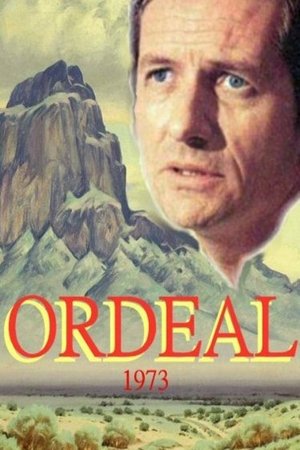 5.1
5.1Ordeal(en)
Left to die in the desert by his wife and her lover, a businessman fights to survive and get his revenge.
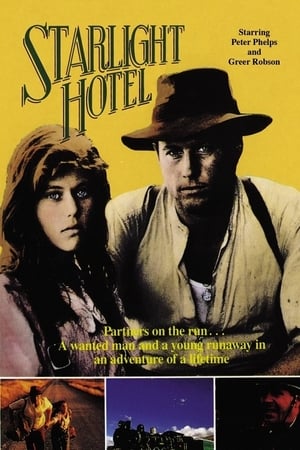 5.9
5.9Starlight Hotel(en)
During the Great Depression, Kate (Greer Robson) is a 13-year-old girl living on New Zealand's South Island. When her mother dies and her father is offered a job in Wellington on North Island, Kate is sent to live with an aunt. The girl runs away to find her father, hopping onto a boxcar and befriending a fellow fugitive, Patrick (Peter Phelps), an emotionally battle-scarred WWI veteran fleeing the authorities after injuring a repo man. Pretending to be father and daughter, Patrick and Kate use each other for cover as they make their way across New Zealand, sleeping under the stars and championing the rights of destitute farmers and homeless squatters whose fortunes have been wiped out by economic hardship.
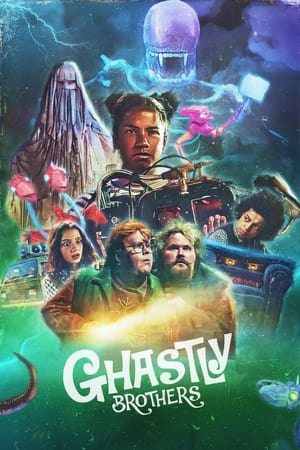 6.7
6.7Ghastly Brothers(nl)
Lilith meets the Ghastly brothers, a pair of strange ghost hunters, at boarding school. When the school falls prey to an infestation of ghosts, they go head-to-head against a horde of fearsome spirits and demonic apparitions in a supernatural battle to save the day.
 8.0
8.0Unholy Matrimony(en)
He's after a man who married for money. Insurance money.
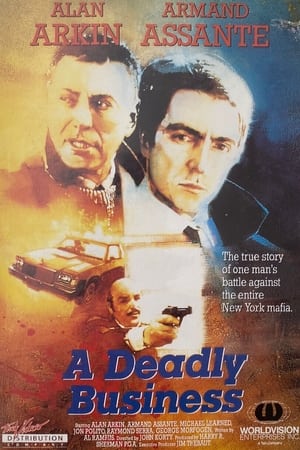 5.0
5.0A Deadly Business(en)
The movie, and true story, is about how Harold began working for the garbage industry in New Jersey only to find out that it was run by the Mafia. Having been in and out of jail most of his life, Harold feared more jail time and so went to the FBI. Harold went undercover to get as much illegal information that he could. The information he got helped put away dozens of Mafia men. Harold is currently in the witness protection program.
Dear Enemy(sq)
Dear Enemy tells the true story of the director’s grandfather who became friends with a German officer during the WWII German occupation of Albania while hiding a partisan, an Italian soldier and a Jewish watchmaker in his cellar.
 5.8
5.8The Sixties: The Years That Shaped a Generation(en)
It was a time when a generation rebelled and lost its innocence. From the Vietnam War to the struggle for racial equality to the birth of a counter-culture explosion, the 1960s was a decade of change, experimentation and hope that transformed an entire nation. The two-hour documentary features revealing interviews with the prominent figures of the era including: Barbara Ehrenreich, Daniel Ellsberg, Jesse Jackson, Tom Hayden, Arlo Guthrie, Henry Kissinger, Norman Mailer, Robert McNamara, Ed Meese III and Bobby Seale. Also released as a one-hour documentary called "1968: The Year that Shaped a Generation."
Similar Movies
 6.0
6.01984(en)
Inspired by one of the twentieth century's greatest novels, composer Lorin Maazel evokes Orwell's totalitarian nightmare, where "Big Brother" is always watching, and those guilty of "thoughtcrime" are condemned to face their worst fears in the infamous "Room 101". Filmed during world premiere performances of Robert Lepage's spectacular and psychologically gripping Royal Opera production and conducted by the composer, an international cast brings George Orwell's dark vision to shattering operatic life.
 0.0
0.0The Ghosts of Versailles(en)
What happened to Figaro and his friends after the events told in Rossini’s and Mozart’s operas? One possible sequel is told in John Corigliano’s “grand opera buffa” The Ghosts of Versailles—an uproariously funny and deeply moving work inspired by Beaumarchais’s third Figaro play, La Mère Coupable, and commissioned by the Met to celebrate its 100th anniversary. This telecast captures its world premiere run, conducted by James Levine. Håkan Hagegård is Beaumarchais, Figaro’s creator, who is deeply in love with Marie Antoinette (Teresa Stratas in a heart-searing performance) and determined to rewrite history and save her from the guillotine. A young Renée Fleming, at the beginning of her international career, sings the unfaithful Rosina. Gino Quilico is the wily Figaro who tries to take matters in his own hands, and Marilyn Horne stops the show as the exotic entertainer Samira.
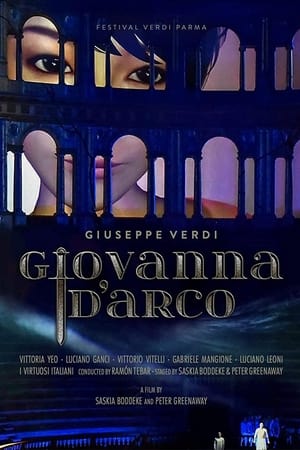 0.0
0.0Giovanna D'Arco(en)
With more than 50 years of experience as film director, Peter Greenaway (Nightwatching, Eisenstein in Guanajuato) combines the worlds of film and opera at the Verdi Festival in Parma, demonstrating what magic those two can do together with an all new approach to Giuseppe Verdi's Giovanna d'Arco, staged and edited by himself and his wife, Saskia Boddeke. The opera's libretto is based on Friedrich Schiller's 'The Maid of Orleans'. It tells the story of the French national hero Jeanne d'Arc, who defends her country against the English troops during the Hundred Years' War. Constantly torn between her humble roots, her love for King Charles VII and her heavenly task to fight for France, she gains eternal glory by giving her life in the final, victorious battle against England.
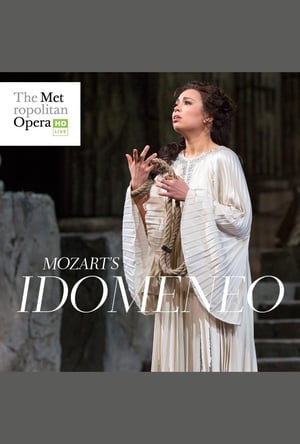 4.0
4.0The Metropolitan Opera: Idomeneo(it)
Mozart’s early masterpiece returned to the Met for the first time in more than a decade with Music Director Emeritus James Levine, who led the work’s company premiere in 1982, again on the podium. Tenor Matthew Polenzani brings both steely resolve and compassionate warmth to the title king of Crete, who is faced with an impossible decision. With her rich mezzo-soprano, Alice Coote sings the trouser role of Idomeneo’s son Idamante, who loves the Trojan princess Ilia, sung with delicate lyricism by Nadine Sierra. Elza van den Heever gives a thrillingly unhinged portrayal of the jealous Elettra. Jean Pierre-Ponnelle’s timeless production blends the grandeur of ancient myth with the elegance of Enlightenment ideals.
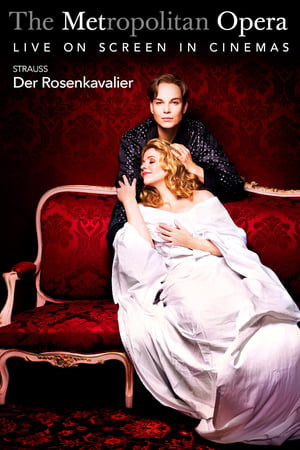 7.0
7.0Der Rosenkavalier(de)
In his new production, Robert Carsen places the action at the end of the Habsburg Empire, underscoring the opera’s subtext of class and conflict against a rich backdrop of gilt and red damask
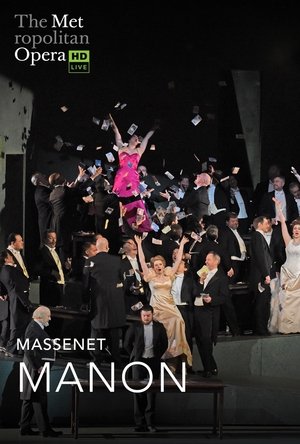 10.0
10.0The Metropolitan Opera: Manon(fr)
Massenet’s tale of passion, excess, and their consequences stars rising soprano Lisette Oropesa in the effervescent title role. Tenor Michael Fabiano is her ardent admirer, Chevalier des Grieux, with Maurizio Benini conducting Laurent Pelly’s enchanting production.
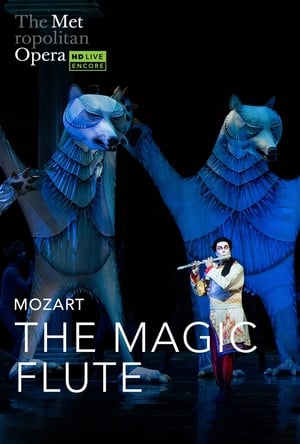 0.0
0.0The Metropolitan Opera: The Magic Flute(en)
Julie Taymor’s kaleidoscopic production returns to select cinemas this holiday season in an encore presentation of the company’s first-ever Live in HD transmission that includes tenor Matthew Polenzani, baritone Nathan Gunn, and bass René Pape in this abridged, English-language version of Mozart’s classic fable.
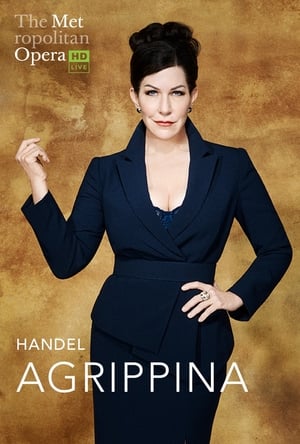 0.0
0.0The Metropolitan Opera: Agrippina(it)
As the imperious title empress, mezzo-soprano Joyce DiDonato leads the Met premiere of Handel’s tale of deception and deceit. Harry Bicket conducts Sir David McVicar’s wry new production, which gives this Baroque black comedy a politically charged, modern updating.
Car Men(xx)
Car Men is a collaboration between the renowned choreographer Jíri Kylían and filmmaker Boris Paval Conen. Based on the opera 'CARMEN' by Georges Bizet they shot a hilarious and poetic short film in the destroyed landscape of a Czech brown coal mine. The actors in this film are older dancers from Kylían's troupe (around 50 years old) and the main prop is a 'TATRA 87', a famous car from 1937.
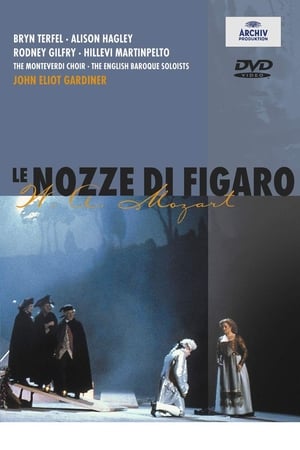 10.0
10.0The Marriage of Figaro(it)
This is a good video of "Figaro", but there are a couple of better ones available. The Bohm and the Pappano are better still due to the female members of the casts. The reason for buying this one is the "Figaro", Bryn Terfel. No one can top him today in that role. John Eliot Gardiner also stands out. Many of us have voiced their opinion that If the Metropolitan Opera would release it's 1998 version, that would be the one to get.
 0.0
0.0Puccini: Manon Lescaut(it)
All the throbbing eroticism—and ultimate heartbreak—of Puccini’s youthful score is unleashed by James Levine and his top-flight cast. Plácido Domingo is Des Grieux, the handsome, headstrong young aristocrat who falls head over heels for the enticing, impetuous Manon Lescaut (Renata Scotto). Manon returns his love, but her obsession with luxury ruins them both. Gian Carlo Menotti’s opulent production, with sets and costumes by Desmond Heeley, superbly captures the colorful world of 18th century France.
 6.5
6.5La Traviata(en)
La traviata (Italian: [la traˈviaːta], "The Fallen Woman"[1][2]) is an opera in three acts by Giuseppe Verdi set to an Italian libretto by Francesco Maria Piave. It is based on La dame aux Camélias (1852), a play adapted from the novel by Alexandre Dumas, fils. The opera was originally entitled Violetta, after the main character. It was first performed on 6 March 1853 at the La Fenice opera house in Venice. Piave and Verdi wanted to follow Dumas in giving the opera a contemporary setting, but the authorities at La Fenice insisted that it be set in the past, "c. 1700". It was not until the 1880s that the composer and librettist's original wishes were carried out and "realistic" productions were staged.[3]
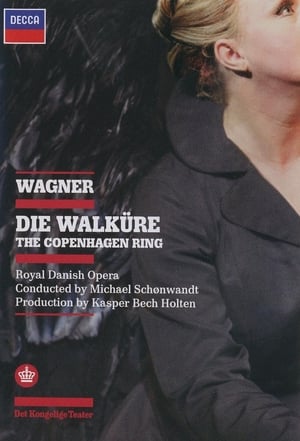 0.0
0.0Die Walküre(de)
Die Walküre (The Valkyrie), WWV 86B, is an opera in three acts by Richard Wagner with a German libretto by the composer. It is the second of the four operas that form Wagner's cycle Der Ring des Nibelungen (The Ring of the Nibelung). The story of the opera is based on the Norse mythology told in the Volsunga Saga and the Poetic Edda.[1][2] In Norse mythology, a valkyrie is one in a group of female figures who decide which soldiers die in battle and which live. Die Walküre's best-known excerpt is the "Ride of the Valkyries". DVD release June 2009.
 6.6
6.6Farinelli(fr)
The life and career of Italian opera singer Farinelli, considered one of the greatest castrato singers of all time.
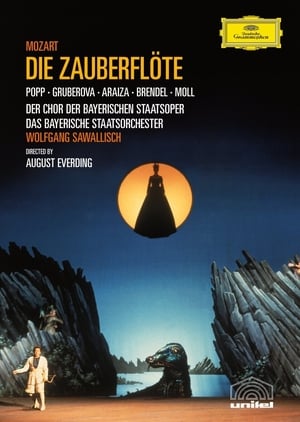 0.0
0.0The Magic Flute(de)
The Queen of the Night enlists a handsome prince named Tamino to rescue her beautiful kidnapped daughter, Princess Pamina. Aided by the lovelorn bird hunter Papageno and a magical flute that holds the power to change the hearts of men, young Tamino embarks on a quest for true love, leading to the evil Sarastro's temple where Pamina is held captive.
 7.0
7.0Aida - Arena di Verona(it)
The grand scale and magnificent acoustics of the Roman arena in Verona are ideally suited to the pageantry of Verdi's Egyptian opera, presented here in a staging that is true to the original 1913 production, framed by obelisks and sphinxes and filled with chorus and dancers. Chinese soprano Hui He has won international acclaim for her portrayal of the eponymous slave girl whose forbidden love for the war hero Radamés (Marco Berti, the experienced Verdi tenor) brings death to them both.
 8.0
8.0Amadeus(en)
Disciplined Italian composer Antonio Salieri becomes consumed by jealousy and resentment towards the hedonistic and remarkably talented young Viennese composer Wolfgang Amadeus Mozart.
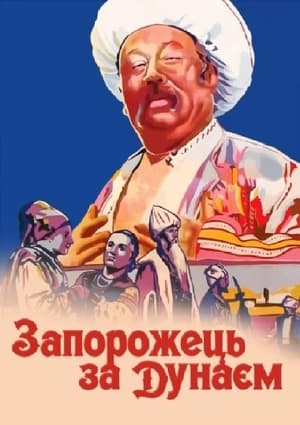 0.0
0.0A Cossack Beyond the Danube(uk)
Zaporozhets za Dunayem (Ukrainian: Запорожець за Дунаєм, translated as A Zaporozhian (Cossack) Beyond the Danube, also referred to as Cossacks in Exile) is a Ukrainian comic opera with spoken dialogue in three acts with music and libretto by the composer Semen Hulak-Artemovsky (1813–1873). The orchestration has subsequently been rewritten by composers such as Reinhold Glière and Heorhiy Maiboroda. This is one of the best-known Ukrainian comic operas depicting national themes.
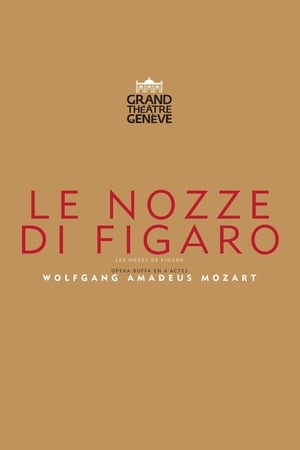 0.0
0.0The Marriage Of Figaro - Grand Théâtre de Genève(it)
The production bears the imprint of the conductor, Marko Letonja, and the director, Tobias Richter, whose understanding is ideal: both breathe a troupe spirit - specific to comedy - into this heterogeneous cast, which brings together young and old. Both give as much importance to recitatives as to arias and ensembles.

